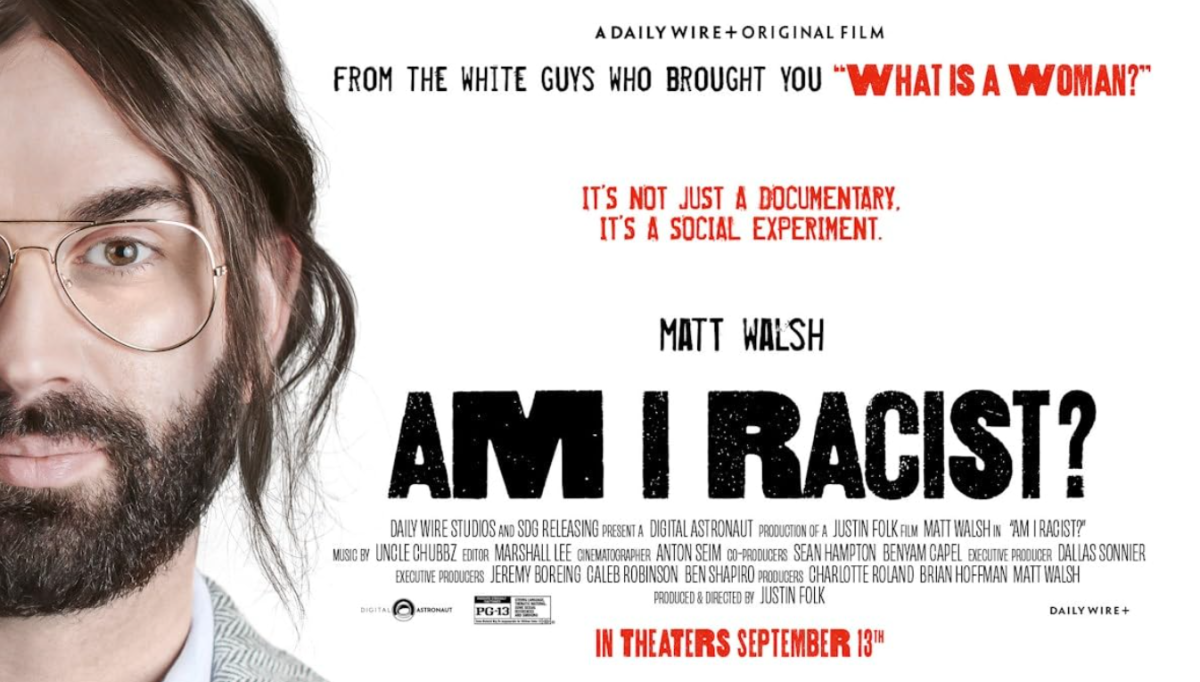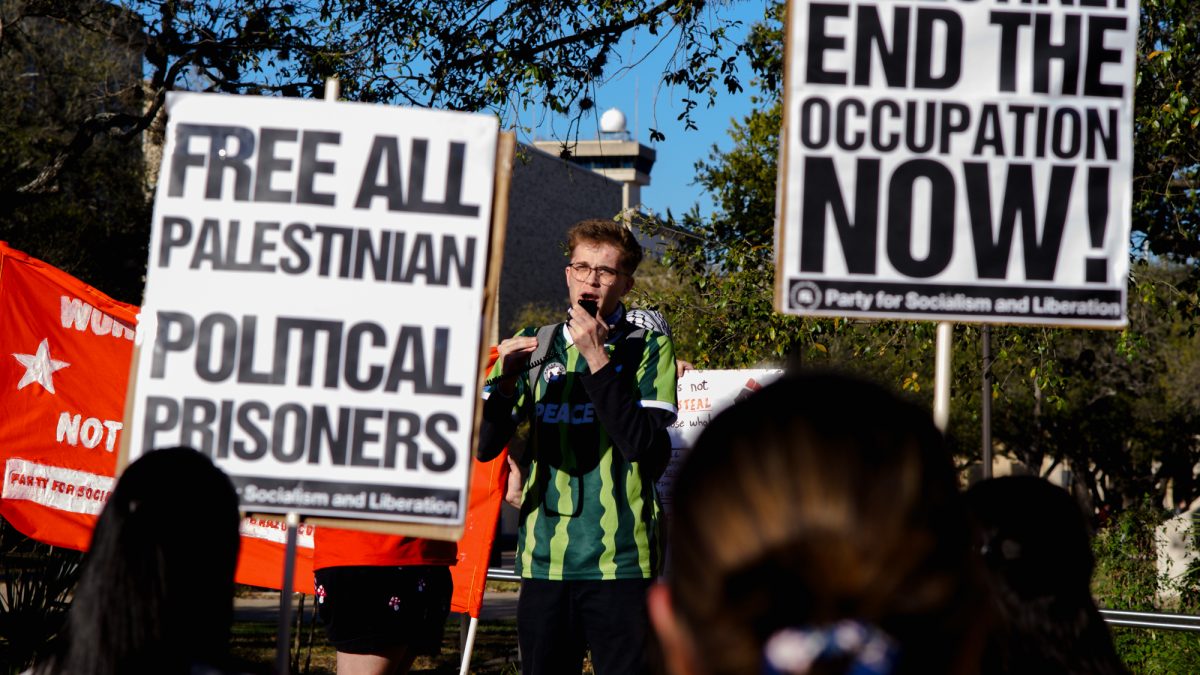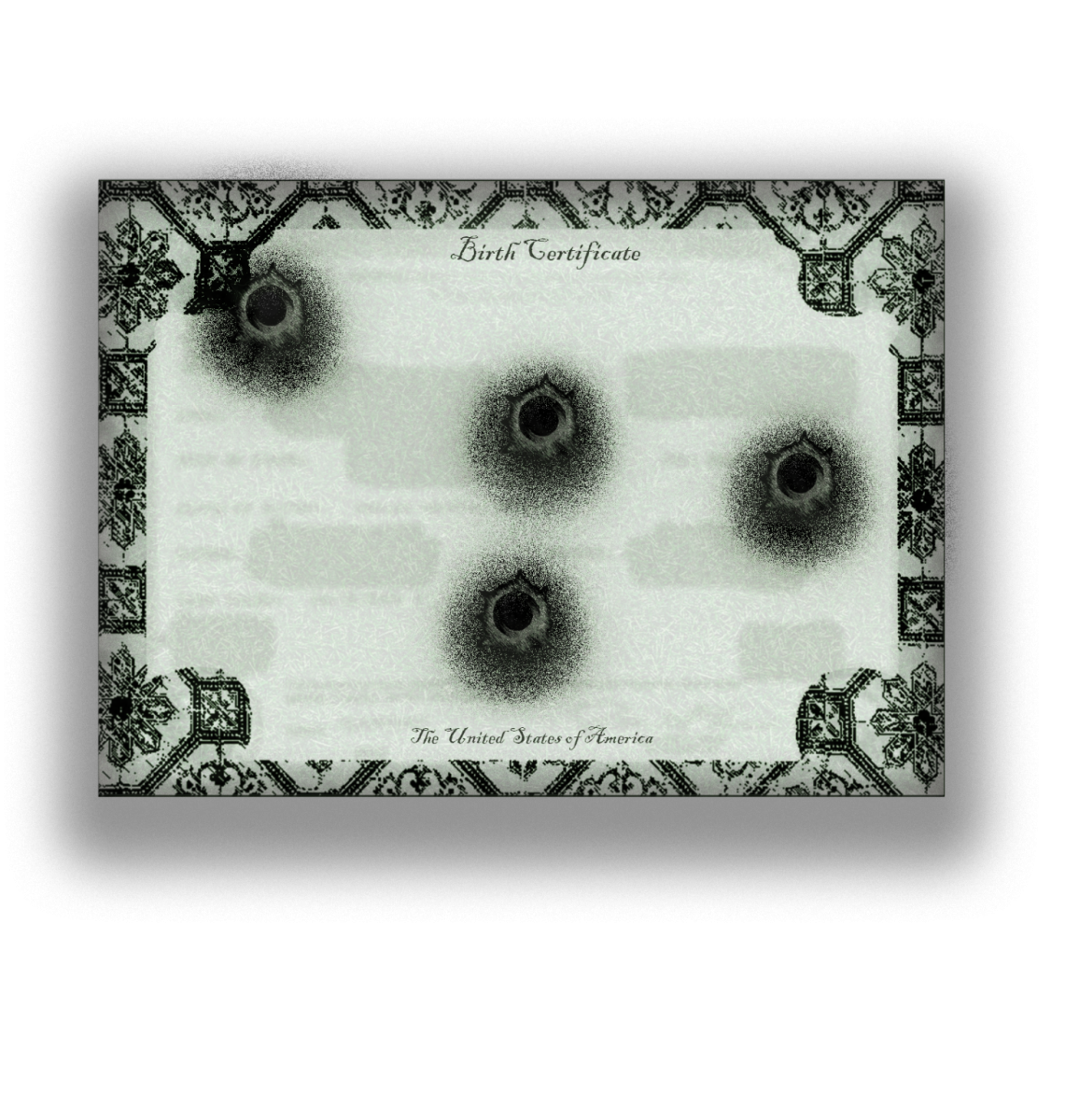Rating: 9/10
“Am I Racist?” — released Sept. 13 and directed by Justin Folk — stars Matt Walsh as he navigates the world of D.E.I. by barely disguising himself as an ally to expose its grifting framework. He interviews a number of prominent D.E.I. activists along with conversing with people within different cities to understand how “racist” they really are.
Because the film’s cinematography and technical aspects are solid, especially with only a $1 million budget, the only real substance to critique is the plot and thematic elements that subvert the traditional documentary style to tell a unique story.
The main failure of the movie is the separation from the documentary style established in “What is a Woman?”, a documentary exploring the modern perspective of gender identity. Instead, Walsh embraces the culture he is investigating, asking simple questions that receive shocking answers.
Instead of asking pressing questions about D.E.I., he allows the interviewee’s logic to sit with the audience, simmering to a boil in your mind’s melting pot. While the deviation from a documentary format is the film’s greatest weakness, it is simultaneously its greatest strength.
The Borat-style documentation presented in this film allows for a heavy comedic effect, allowing Walsh to parody himself as a certified D.E.I. expert and attempt to spread awareness throughout the allegedly “racist” communities.
One such scene involves Walsh convincing Southern bikers in a small town bar littered with posters of Trump and confederate flags to “decenter” their whiteness and seek redemption.
However, instead of discovering deeply-embedded racism, he found the bikers to be a very tolerant and accepting group of people. No matter who he interviewed in any city, they all stated positive things about America’s racial environment.
Nevertheless, Walsh pursues the roots of this movement, sneaking into the Race2Dinner show in Atlanta as a servant — no symbolism there — and even landing an interview with the woman who started it all: Robin DiAngelo.
This is where the Borat-style comedy becomes a vital tool in this documentary: because these activists have no real logic, deconstructing them from a D.E.I. activist viewpoint allows the audience to know the fallacies of the movement and laugh.
DiAngelo’s interview encapsulates this theme perfectly. She offers little logic to Walsh’s questions and no solution to solve the racism epidemic she claims is all over the country. Her naiveté is expanded when Walsh brings his Black friend Ben into the interview and convinces DiAngelo that paying him $20 in reparations is America’s only solution to racism. The perfect climax for a well-executed comedy.
This inspires Walsh to host his own D.E.I. workshop, spouting common logic that most of the attendees blindly accept. When he wheels in his handicapped uncle and violently condemns him for a racist joke supposedly uttered 30 years ago, the entire group joins in.
But it doesn’t stop there. Because America is allegedly so fundamentally racist and destructive, Walsh claims we must eradicate the evil in our white supremacist bodies by self-flagellation. Only by the ultimate form of physical torture can we reedeem our despicable hatred for all ethnicities.
Half the workshop was willing to commit self-flagellation to repent for their racism.
This blend between Borat-style comedy and reality becomes so blurred in this scene you become subjected to a version of surrealism, making you shocked beyond belief that this potential exists. Through this constant shock factor, Walsh is able to supplement his jokes under a satirical lens.
This is essentially what keeps the movie afloat: while Walsh deviates from his interrogative style and adopts that of Borat, he asks questions and reacts like a true D.E.I. expert. From this alone, Walsh is able to generate a litany of jokes supporting his claim of deception and control. By pretending to improve the world, he is really revealing to the audience the divisiveness of simply acting like a D.E.I. expert.
While the film itself is inherently political, the non-political elements sprinkled throughout the film also allow it to shine. Underneath all of the dirt and grime of Walsh’s undercover operation, the film teaches the importance of human unity, human kindness and the importance of becoming open-minded in our perception of the world.
Above all, the film teaches its audience to not be deceived by “experts” like Walsh that purport to be agents of beneficial change.
Therefore, the documentary “Am I Racist?” receives a positive review.
I recommend you take the time to watch it, no matter what side of the political divide you belong to. You never know, you might just burst out laughing.
Killian Netherton is an English and psychology sophomore and opinion writer for The Battalion.










